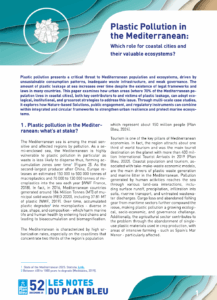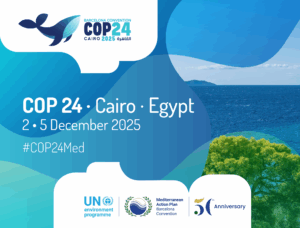Sophia Antipolis, France, 18 May 2016: The overall objective of this 2nd Steering Committee of Med-ESCWET project is to collect the opinions and experience of all participants on biophysical assessments conducted at each site, and on the ongoing economic valuations.
Context and objectives of the Med-ESCWET
Project According to IPCC reports, climate change will have a significant impact on water resources in the Mediterranean region. An increase in extreme events (floods, heat waves, droughts, etc…) is expected, and has already been noted in some regions, as well as the related risks in terms of economic losses and human lives. Adaptation to climate change and mitigation of its impacts are therefore major challenges for water management in the Mediterranean region.
While many studies on the impact of climate change impact on ecosystems already exist and are currently underway, it seems that, conversely, the study of ecosystems’ role as an adaptation tool is still largely to develop. However, ecosystems such as (undamaged) wetlands have (1) a direct role in climate regulation by reducing greenhouse gas emissions and (2) a function of mitigation of climate change effects by providing protection against floods, droughts and coastal storms.
The Med-ESCWET project on “the economic valuation of ecosystem services provided by wetlands in the context of climate change in the Mediterranean” aims at promoting ecosystems-based approach and facilitating its integration in national climate change adaptation policies as a main objective. To raise policy makers awareness on wetlands importance in climate change adaptation, the project seeks to economically assess these services to inform the decision-making process. Economic valuation of these ecosystems services will allow to reconcile both the development and conservation issues related to preservation or destruction of certain ecosystems, to assess the relative impact of alternative actions and, thus, to guide decision-making.
This project was initiated in 2013 by Plan Bleu, in partnership with Tour du Valat, for a three years period. It is co-financed by the MAVA Foundation and the Prince Albert II of Monaco Foundation.
Second meeting of the steering committee objectives:
Following the first meeting of the steering committee of the Med-ESCWET project (May 2015), four Mediterranean pilot sites were selected. For each of them, a biophysical assessment was carried out on one of the ecosystem service of interest, as follow: Lonjsko polje floodplain (Croatia) for flood control service, Vic coastal lagoon (France) for coastal protection service, Yeniçaga peatlands (Türkiye) and Burullus Lake (Egypt) for carbon sequestration.
The overall objective of this 2nd Steering Committee of Med-ESCWET project that was held in Sophia Antipolis, France, on 18 May 2016, was to gather the opinions and experience of all participants on biophysical assessments conducted at each site, and on the future economic valuations.
The specific objectives of this 2nd Steering Committee meeting were to:
- Report on progress achieved;
- Discuss results of biophysical assessment carried out on each pilot site
- Discuss the methodology proposed for the economic valuation.












